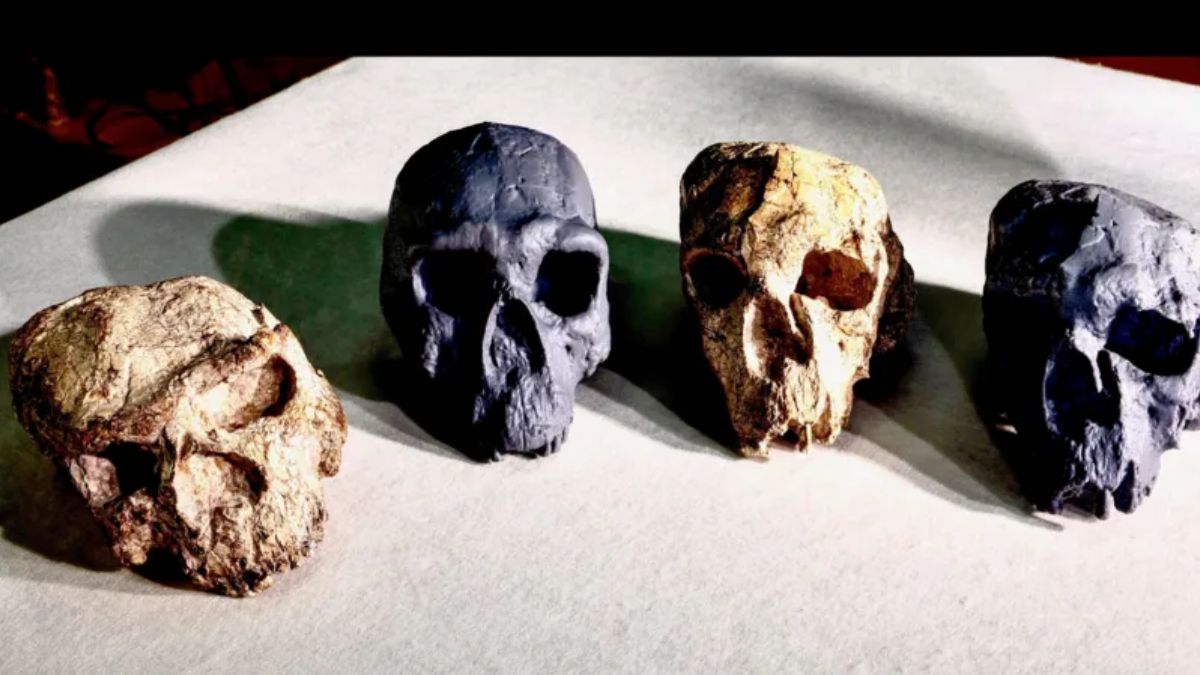A fossilised human skull discovered in China, believed to be around a million years old, could completely change what we know about where we come from.
Scientists studying the skull say it suggests Homo sapiens may have appeared at least 500,000 years earlier than we once thought. Even more striking, their findings hint that we may have shared the planet with other sister lineages, such as the Neanderthals, for far longer than previously believed.
Researchers say this new analysis “totally changes” our understanding of human evolution, and if they’re right, it could rewrite a crucial early chapter of our story.
Here’s why this discovery matters.
About Yunxian-2
The fossil, Yunxian-2, was discovered decades ago in Hubei Province, China, but for years it was thought to belong to Homo erectus, the first large-brained human ancestor. Being around a million years old, it seemed too ancient to show any close connection to modern humans.
Recent studies, however, have completely changed that view. Researchers used CT scans and computer modelling to digitally reconstruct the skull. To fill in missing pieces, they incorporated some anatomical details from an earlier fossil called Yunxian-1.
“There were so many cracks and broken pieces,” said Ni, a researcher from the Chinese Academy of Sciences and co-author of the study. “It’s very much like a digital surgery.”
Professor Xijun Ni of Fudan University, who co-led the research, admitted that the findings initially seemed almost unbelievable.
“From the very beginning, when we got the result, we thought it was unbelievable. How could that be so deep into the past?” he told the BBC. “But we tested it again and again, using all the models and methods, and now we are confident about the result. We’re actually very excited.”
Published in the journal Science and involving scientists from the Natural History Museum in London, the analysis now indicates that Yunxian-2 belongs to Homo longi, a sister species to both Neanderthals and modern humans.
The skull shows several distinctive features, including a broad and massive roof of the mouth, flat and low cheekbones, an expanded region at the back of the head, and unique aspects of the ear region. These traits link it closely to other members of this lineage, suggesting a more complex story of human evolution than previously thought.
Also read: Inside ‘secret’ tomb with 2000-year-old skeletons in Jordan’s Petra, below ‘Indiana Jones’ landmark
Why is this finding important?
The findings from Yunxian-2 could radically change our understanding of human evolution. If correct, it suggests that early forms of Homo sapiens may have been around a million years ago, far earlier than the 300,000 years previously believed.
Professor Chris Stringer of the Natural History Museum, who co-led the study, highlighted the significance of the discovery. He said it’s likely that fossils of million-year-old Homo sapiens exist somewhere on Earth, waiting to be found.
This new timeline also dramatically extends the period during which humans and their close relatives coexisted. Instead of overlapping for just a few hundred thousand years, Homo sapiens, Neanderthals, and Homo longi may have lived side by side for up to 800,000 years.
Another key impact of the discovery is that it may help resolve the so-called “muddle in the middle”, the confusing set of fossils dating from between 800,000 and 100,000 years ago that scientists have struggled to classify.
According to Professor Xijun Ni, rethinking the timeline allows many of these fossils to be grouped as primitive forms or subgroups of the three major human branches.
“Human evolution is like a tree,” Ni told The Independent. “This tree included several branches, and there were three major branches that are closely related. They may have interbred with each other, and they coexisted for almost 1 million years. So this is an unbelievable result.”
Not everyone agrees
Some experts urge caution. Dr Aylwyn Scally, an evolutionary geneticist at the University of Cambridge, welcomed the research but warned against overconfidence in the timing estimates.
“One has to be particularly tentative about the timing estimates, because those are very difficult to do, regardless of whether you’re looking at genetic or fossil evidence,” he told the BBC.
Scally added that even with large amounts of genetic data, it is challenging to pinpoint exactly when these populations may have coexisted, within 100,000 years or more.
While Professors Ni and Stringer’s conclusions are plausible, he noted, more evidence is needed before scientists can be certain.
“That picture is still quite unclear to us. If the conclusions of this research are supported by other analyses, ideally from some genetic data, then we would start to be increasingly confident about it,” he told BBC News.
With input from agencies


)

)
)
)
)
)
)
)
)



